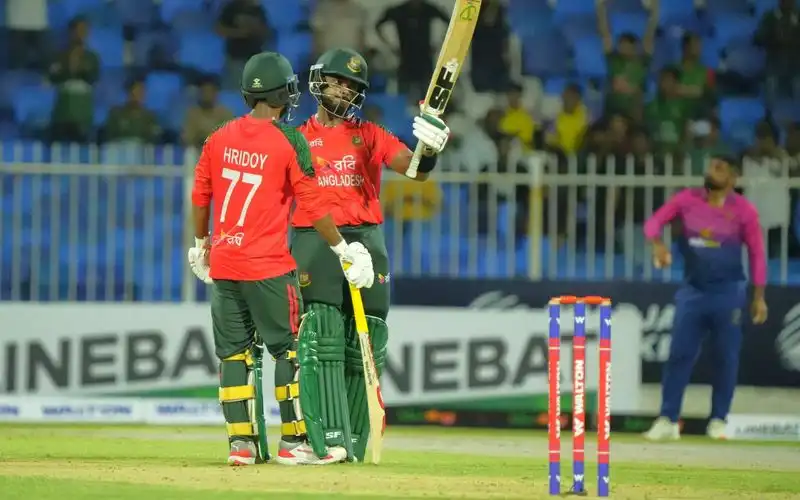![Venkatesh Iyer and Shahrukh Khan [Source: AP Photos, @Rokte_Amarr_KKR/x.com]](https://onecricketnews.akamaized.net/parth-editor/oc-dashboard/news-images-prod/1747508764962_venky_srk.jpg?type=hq) Venkatesh Iyer and Shahrukh Khan [Source: AP Photos, @Rokte_Amarr_KKR/x.com]
Venkatesh Iyer and Shahrukh Khan [Source: AP Photos, @Rokte_Amarr_KKR/x.com]
For a league like the IPL, it is often said that the tournament is won or lost in the auction table. The Kolkata Knight Riders entered the IPL 2025 auction as the defending champions in the hunt of building a solid unit that strengthens their title defence. However, budget mismanagement and lack of foresightedness saw them end up with a team that had some major strategical holes.
Here is a look at the five biggest auction blunders of KKR that led to their early exit in IPL 2025 -
5. Failing to Secure Indian Core Strength
One of the biggest blunder from KKR was neglecting the acquistion of a string Indian core. By focusing on budget overseas picks, the management reducted their playing XI flexibility. While they retained Rinku Singh and invested heavily on Venkatesh Iyer, they failed to pick up a quality Indian pacer beyond Harshit Rana.
The failure to attain a strong Indian core often led them to use up crucial overseas spots to fill up spots where Indian players could have been used. Consistent and successful teams like Mumbai Indians and Chennai Super Kings, or even KKR themselves for that matter has shown over the years the value of a strong Indian core. This oversight from the KKR management cost them dearly during the tournament.
4. Missing Out on Shami
![Mohammed Shami [Souce: @CricCrazyJohns/x.com]](https://onecricketnews.akamaized.net/parth-editor/oc-dashboard/news-images-prod/1747508908634_mohammed_shami.jpg?type=mq) Mohammed Shami [Souce: @CricCrazyJohns/x.com]
Mohammed Shami [Souce: @CricCrazyJohns/x.com]
After releasing Mitchell Starc, the prime target of KKR should have been the acuquistion of pacer who could lead their bowling attack. KKR entered the bidding for Mohammad Shami but backed out at ₹ 10 Cr and thus an oppirtunity to secure a player who is experienced and also familiar with the conditions at the Eden Gardens.
Instead of going for atleast one experienced player in the pace department, they decided to rely on young guns like Harshit Rana, Vaibhav Arora and the injruy prone, Umran Malik. In the end, the Knights ended up with a bowling line-up that had rigidity and shallowness when it comes to adapting under high pressure.
3. The Shreyas Iyer Saga
![Shreyas Iyer with IPL trophy for KKR [Source: @badassma_18/x.com]](https://onecricketnews.akamaized.net/parth-editor/oc-dashboard/news-images-prod/1747509010324_shreyas_iyer.jpg?type=mq) Shreyas Iyer with IPL trophy for KKR [Source: @badassma_18/x.com]
Shreyas Iyer with IPL trophy for KKR [Source: @badassma_18/x.com]
One of the most puzziling decisions from KKR was the release of their title winning captain, Shreyas Iyer due to financial disagreements. After failing to secure his renetntion, KKR tried to buy him back during the auction but lost to Punjab's massive bid of ₹ 26.75 Cr.
The leadership vaccum forced them to select Ajinkya Rahane as the captain of the team. Rahane is a solid player a consistent performer, but he does not have the proven leadership credentials of Shreyas Iyer for KKR. This disruption in the team heirarchi somehow proved costly in the crunch situations.
2. Losing Phil Salt
![Phil Salt for KKR [Source: @KKRKaFan/x.com]](https://onecricketnews.akamaized.net/parth-editor/oc-dashboard/news-images-prod/1747509088651_phil_salt.jpg?type=mq) Phil Salt for KKR [Source: @KKRKaFan/x.com]
Phil Salt for KKR [Source: @KKRKaFan/x.com]
Phil Salt was one of the prime reasons that KKR lifted the trophy in IPL 2024. However, after releasing him, the franchise failed to reacquire him due to the budget constraints they faced after buying Venkatesh Iyer for ₹ 23.75 Cr.
The absence of Salt meant that they lacked the impactful and fiery starts in most of the games ceding momentum to the opposition. The replacemens that KKR went for like Rahmanullag Gurbaz and Quinton de Kock are proven performers but not as impactful and effective as the English opener.
1. Venkatesh Iyer: The ₹ 23.75 Cr Gamble
One of the biggest mistake by KKR was splurging ₹23.75 Cr on Venkatesh Iyer after getting involved in an intense bidding war with RCB. While Iyer contributed to their 2024 title run, this expenditure appears excessive for a player whose bowling utility has diminished significantly under the Impact Player rule.
With limited contributions as a bowler, the valuation fo Venkatesh Iyer as a pure middle-order batter was way more that over spending. The early extravagance in the auction by the management caused a domino effect that made them settle for cheaper alternatives instead of their prime targets in the event.
.jpg)




